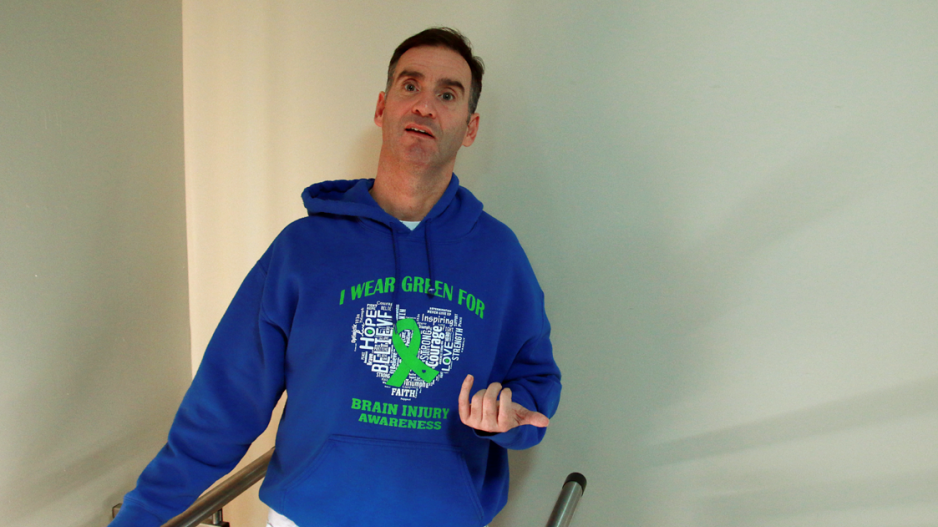Everything changed for Michael Coss on May 18, 2006.
While travelling on the Coquihalla Highway to Kelowna with his family, he lost control of the van he was driving. The vehicle flipped and rolled, leaving Coss and his seven-month-old son in comas. His then-spouse’s wrist was fractured in the crash, while his son’s twin sister received minor injuries.
While his son regained consciousness after 10 days and has since recovered from his injuries, Coss remained in a coma for six and a half months. His family was told his chances for recovery were slim and that, at best, he would remain in a diminished mental and physical state for the rest of his life. However, after he woke from his coma, he started hyperbaric oxygen therapy, which allowed him to get to the point where he could move around in a power wheelchair.
Coss said living with a traumatic brain injury forced him to slow down and enjoy the simple things in life, but it hasn’t slowed his drive at all. He has since won a Courage to Come Back award, self-published a book about his recovery and become a regular public speaker. He has also raised $22,000 for one of Rick Hansen’s Wheels in Motion events.
“Before my injury, I was running at a fast pace in both my personal and professional life,” he said. “I am a new person now, but I still have many of my same qualities that I had before my injury, like my competitive and social nature.”
One of the things that has been instrumental in Coss’s recovery is a robot-assisted device called a Lokomat. Developed by a Swiss company, it automates or assists walking movements on a treadmill for patients with severe neurological impairment. The technology looks like something out of a science fiction movie, but it has been shown in clinical studies to help patients improve motor skills and other functions affected by neurological trauma.
Coss started using the device in 2009 after his physiotherapist got an invitation from Pauline Martin at Neuromotion Physiotherapy. The company has a Surrey-based office and clinic within the city’s Health and Technology District, located across the street from Surrey Memorial Hospital.
Since Coss started using the technology, he’s shown dramatic improvement in his physical and mental well-being.
“I am now walking with a cane, and soon without,” he said, adding that using the device gives him confidence and a sense of freedom. “You have a feeling of being a superhuman, that you are invincible and indestructible.”
B.C. has only two Lokomat devices, one in Vancouver and one in Victoria. Coss, who lives in Langley in a nursing home, has taken up the cause of raising $500,000 to get a device for Fraser Valley-based patients. Martin said the Vancouver device is used by about 30 different people a week, and the Lokomat device in Victoria benefits about 25 patients.
Coss said since his injury he has dedicated any time not spent with his family to helping people enjoy their lives and to not take anything for granted.
“My life is now about giving back to others – and inspiring others to be the best they can be in their own personal situation.” •




